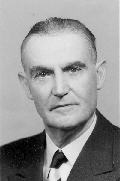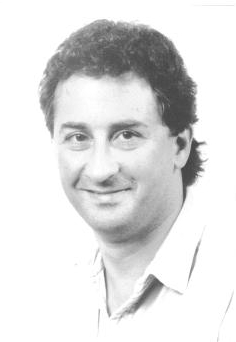
 |
Paul Nurse, Ph.D., F.R.S. Director of Research Imperial Cancer Research Fund Cell Cycle Laboratory London WC2A 3PX |
Paul Nurse was recognised for his research on the control of the cell cycle, the process by which cells divide and produce copies of themselves. Cell reproduction is important both for normal growth and to repair damage to tissues and organs. The cell cycle is also important for understanding cancer which occurs when cell reproduction goes out of control.
Two processes are essential to all cell cycles, the S-phase, when the genes which make up the chromosomes are replicated and the M-phase or mitosis, when the copied chromosomes are segregated into two newly divided cells. These processes ensure that each newly divided cell receives a full set of genes required for the proper functioning of the cell. Central to the control of these processes is a class of enzyme called cyclin dependent kinases (CDKs). Paul Nurse and his colleagues have worked on the CDK called cdc2 found in the fission yeast, which controls the onset of both the S-phase and mitosis. They established that cdc2 can be considered the cell cycle engine driving cells through the cell cycle to their subsequent division into two daughter cells.
Paul Nurse discovered that not only yeast, but humans, different animals and plants as well all have a cdc2 like gene and it appears that there is a universal mechanism involving CDKs which is common to the control of cell reproduction in all living organisms. Research into how they behave in animal cells has revealed not only that they play a central role in controlling S-phase and mitosis, but also in regulating the change from a non-growing to a growing state, an important regulatory step which can become defective during the development of cancer.
 |
Gerard I. Evan, Ph.D. Royal Society Napier Research Professor Imperial Cancer Research Fund Biochemistry of the Cell Nucleus Laboratory Department of Biochemistry, University College London WC2A 3PX |
Dr. Gerard Ian Evan was honored for his outstanding work on the control of cell proliferation. In his research he addresses questions like; what signals tell cells when to grow and multiply ? What biochemical pathways control the process and what checks and balances are intended to prevent errors ? Since tumors are the direct result of these errors, his studies added to a large body of information about these processes which today, in sum, we call the cell cycle.
Dr. Evan was able to demonstrate that one of the important checks and balances which cells use to prevent uncontrolled multiplication is a kind of suicide pathway. For a cell receiving contradictory signals for growth and growth limitation, one option is programmed cell death. Dr. Evan showed that this option is an important alternative to growth - that it can protect against accumulation of cells which might exhibit the tumor-cell-like behavior of uncontrolled multiplication.
Dr. Evan continues with collateral research into human disease and possibilities of treatment.
| © The Webmaster of the Department of Physiology |

 |
Freitag, 16. Dezember 2005 |